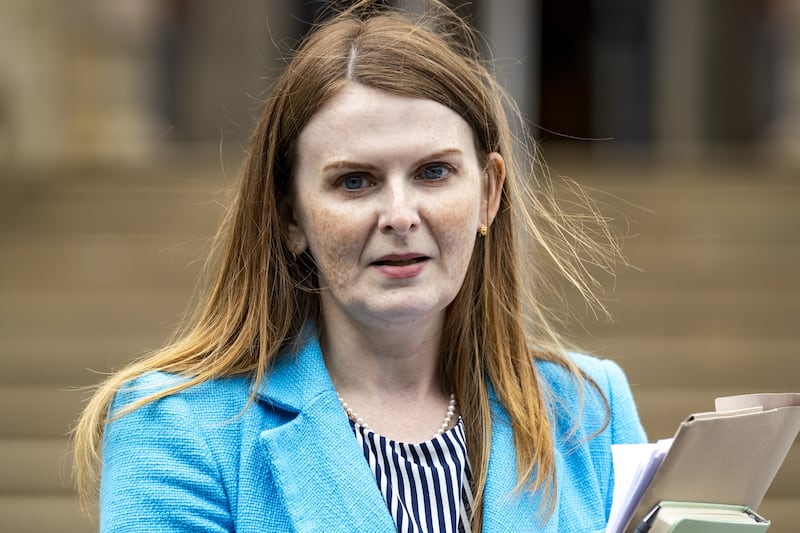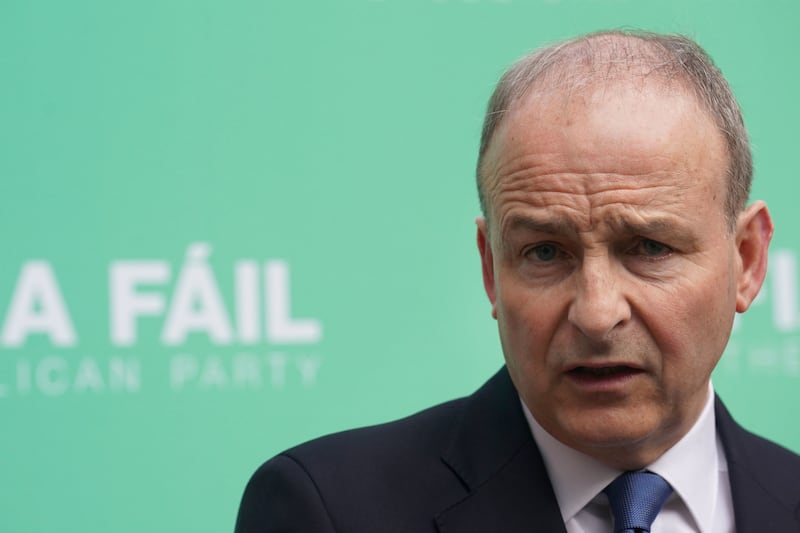The Irish Government has been accused of leaving the childcare sector out of its budgetary plans, despite the industry facing a staff shortage crisis.
Minister for Public Expenditure and Reform Michael McGrath said the government has had to consider a "number of issues" in relation to the childcare sector.
He said extensive support has been provided to the industry throughout the pandemic crisis.
Childcare workers are often on the minimum wage, prompting warnings that many are leaving the sector because of low pay.
Mr McGrath and Minister for Finance Paschal Donohoe faced a series of questions from members of the public during a phone-in on RTE's Today With Claire Byrne.
One of the first callers was Deborah, who works in childcare, and asked why "no value" was put on the childcare sector in yesterday's budget.
"We have been left drowning in crisis after crisis and you have done nothing," she added.
"Everyone is talking about the fact that childcare got nothing."
She warned that the sector is losing workers because of low wages.
Mr McGrath said he wants reforms of the sector to ensure workers have a "good quality of life" and earn a decent living.
"We acknowledge that wage levels are low in childcare," he added.
He said the National Childcare Scheme will next year assess wages as part of its remit.
Sinn Féin spokeswoman on children, Kathleen Funchion, said Budget 2021 was a missed opportunity to reform the childcare sector.
"Ireland has some of the highest childcare fees in Europe," she added.
"Despite being highly qualified and carrying out vital work, childcare workers are often on little more than minimum wage. This isn't fair and it isn't sustainable."
Mr Donohoe said the "overwhelming focus" of the Government is to make Level 3 plans work to bring down Covid-19 cases across the country.
"We're at Level 3 which has already meant a loss of jobs, which already has had so many difficult consequences for so many," he added.
"If our country does find itself having to make further demanding public health choices, then we have a framework in place to support our country through it.
"That is the backdrop to the enormous and unprecedented scale of measures that Michael announced yesterday."
Mr McGrath said: "The need for flexibility and the need to reflect that level of deep uncertainty was at the heart of our approach yesterday, and when you look at some of the structures that Paschal and I have put in place in this budget, it is to provide for those scenarios."
Another caller, Darragh from Dublin, said he and his partner have been saving for a house for five years in an area that qualifies for the help-to-buy scheme.
He added: "We had made an offer on a house, it went to sale agreed, but due to a change in the Covid top-up scheme the bank asked for additional documentation.
"In the last few days the bank has now rescinded their offer stating the fact that one of our employers was utilising the wage top-up scheme, despite the fact that we were both fully employed, had been throughout Covid, and neither of our wages have been subsidised."
Mr Donohoe said the Central Bank wants to ensure loans granted now can be repaid in the future.
He said bank CEOs told him the issue would be dealt with on a case-by-case basis.
"I don't want the use of the wage subsidy scheme to be of itself something that debars someone like Darragh from getting a loan," Mr Donohoe added.
"I want to ensure that when he does get this loan that it is done in a way that he can repay the loan."
Meanwhile the Tánaiste has admitted incentives for domestic spending will have little impact at the moment because of Covid-19 restrictions.
It was announced in yesterday's budget that the VAT rate for the hospitality and tourism sector is to be cut from 13% to 9% from November.
But many hospitality businesses have been closed or operating at a reduced level because of restrictions.
Leo Varadkar admitted the VAT cut is not much use to the industry at the moment.
It was part of the Government's 18 billion euro budget to help sustain the economy and society through the coronavirus pandemic.
Budget 2021 is based on the premise that the country's fight against Covid-19 will last throughout 2021.
Mr Varadkar also acknowledged the government's Stay and Spend initiative "isn't much use" to businesses at the moment.
He told RTÉ Morning Ireland today: "We're telling people there to stay in their county, not to take trips around Ireland, unfortunately.
"We're leaving that in place but we're also doing the VAT cut, which actually isn't much use to the industry at the moment either.
"But we decided that we would put it in place from November until December of 2021, so it will be there for all the next year so when they get back up and running again, they'll have both incentives."








